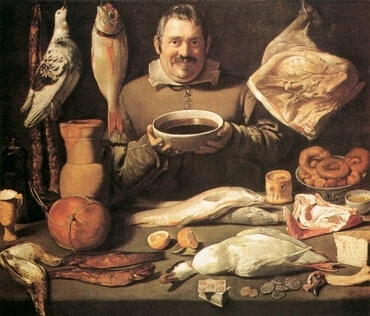1
HE
EN så til Sara, som han havde lovet, og HE
EN gjorde ved Sara, som han havde sagt,
2
og hun undfangede og fødte Abraham en Søn i hans Alderdom, til den Tid Gud havde sagt ham.
3
Abraham kaldte den Søn, han fik med Sara, Isak;
4
og Abraham omskar sin Søn Isak, da han var otte Dage gammel, således som Gud havde pålagt ham.
5
Abraham var 100 År gammel, da hans Søn Isak fødtes ham.
6
Da sagde Sara: "Gud ham beredt mig Latter; enhver, der hører det, vil le ad mig."
7
Og hun sagde: "Hvem skulde have sagt Abraham, at Sara ammer Børn! Sandelig, jeg har født ham en Søn i hans Alderdom!"
8
Drengen voksede til og blev vænnet fra, og Abraham gjorde et stort Gæstebud, den dag Isak blev vænnet fra.
9
Men da Sara så Ægypterinden Hagars Søn, som hun havde født Abraham, lege med hendes Søn Isak,
10
sagde hun til Abraham: "Jag den Trælkvinde og hendes Søn bort, thi ikke skal denne Trælkvindes Søn arve sammen med min Søn, med Isak!"
11
Derover blev Abraham såre ilde til Mode for sin Søns Skyld;
12
men Gud sagde til Abraham: "Vær ikke ilde til Mode over Drengen og din Trælkvinde, men adlyd Sara i alt, hvad hun siger dig, thi efter Isak skal dit Afkom nævnes;
13
men også Trælkvindens Søn vil jeg gøre til et stort Folk; han er jo dit Afkom!"
14
Tidligt næste Morgen tog da Abraham Brød og en Sæk Vand og gav Hagar det, og Drengen satte han på hendes Skulder, hvorpå han sendte hende bort. Som hun nu vandrede af Sted, for hun vild i Be'ersjebas Ørken,
15
og Vandet slap op i hendes Sæk; da lagde hun Drengen hen under en af Buskene
16
og gik hen og satte sig i omtrent et Pileskuds Afstand derfra, idet hun sagde ved sig selv: "Jeg kan ikke udholde at se Drengen dø!" Og således sad hun, medens Drengen græd højt.
17
Da hørte Gud Drengens Gråd, og Guds Engel råbte til Hagar fra Himmelen og sagde til hende: "Hvad fattes dig, Hagar? Frygt ikke, thi Gud har hørt Drengens
øst der, hvor,han ligger;
18
rejs dig, hjælp Drengen op og tag ham ved Hånden, thi jeg vil gøre ham til et stort Folk!"
19
Da åbnede Gud hendes Øjne, så hun fik Øje på en Brønd med Vand; og hun gik hen og fyldte Sækken med Vand og gav Drengen at drikke.
20
Og Gud var med Drengen, og han voksede til; og han bosatte sig i Ørkenen og blev Bueskytte.
21
Han boede i Parans Ørken, og hans Moder tog ham en Hustru fra Ægypten.
22
Ved den Tid sagde Abimelek og hans Hærfører Pikol til Abraham: "Gud er med dig i alt, hvad du tager dig for;
23
tilsværg mig derfor her ved Gud, at du aldrig vil være troløs mod mig eller mine Efterkommere, men at du vil handle lige så venligt mod mig og det Land, du gæster, som jeg har handlet mod dig!"
24
Da svarede Abraham: "Jeg vil sværge!"
25
Men Abraham krævede Abimelek til
egnskab for en Brønd, som Abimeleks Folk havde tilranet sig.
26
Da svarede Abimelek: "Jeg ved intet om, hvem der har gjort det; hverken har du underrettet mig derom, ej heller har jeg hørt det før i Dag!"
27
Da tog Abraham Småkvæg og Hornkvæg og gav Abimelek det, og derpå sluttede de Pagt med hinanden.
28
Men Abraham satte syv Lam til Side,
29
og da Abimelek spurgte ham: "Hvad betyder de syv Lam, du der har sat til Side?"
30
svarede han: "Jo, de syv Lam skal du modtage af min Hånd til Vidnesbyrd om, at jeg har gravet denne Brønd."
31
Derfor kaldte man dette Sted Be'ersjeba, thi der svor de hinanden Eder;
32
og de sluttede Pagt ved Be'ersjeba. Så brød Abimelek og hans Hærfører Pikol op og vendte tilbage til Filisternes Land.
33
Men Abraham plantede en Tamarisk i Be'ersjeba og påkaldte der HE
EN den evige Guds Navn.
34
Og Abraham boede en Tid lang; som fremmed i Filisternes Land.







